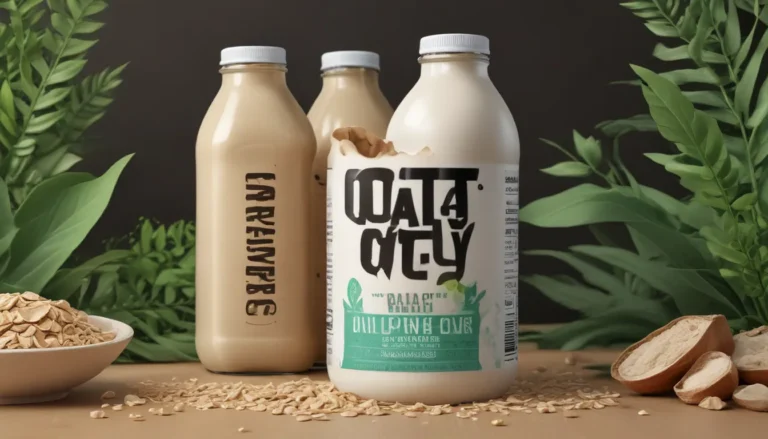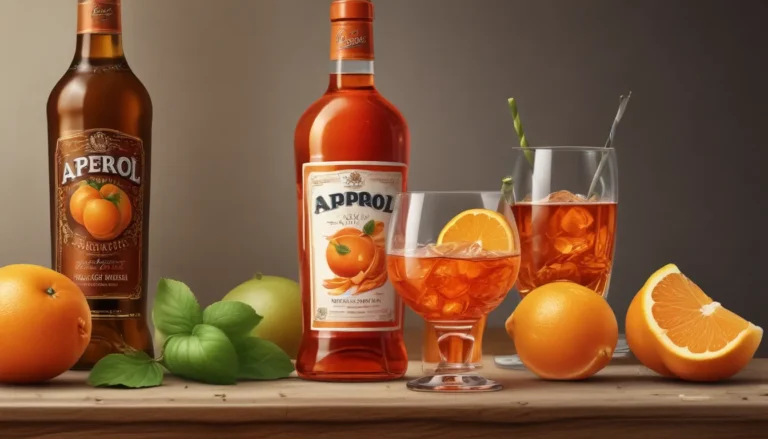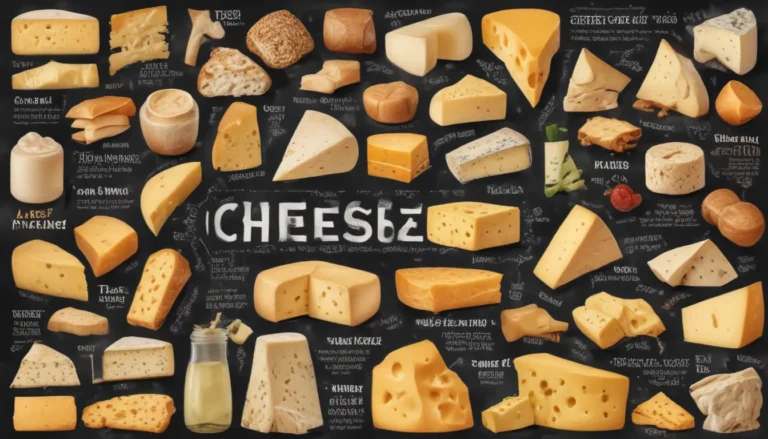The pictures in our articles might not always show exactly what the text is talking about. We use these images to make the article more interesting and eye-catching. They are there to add to the text, but not to replace it or show every detail.
Food, a pillar of life and joy, offers a diverse palate of flavors and textures that tantalize our taste buds. However, beneath the delightful surface of the culinary world lie some truly gross and unsettling food facts that may both fascinate and repulse you. In this article, we embark on a journey to unveil 19 shocking revelations about the darker side of food. Get ready to explore the world of gross culinary discoveries!
The Hidden Secrets of Ingredients
Castoreum: The Not-So-Secret Ingredient
One surprising fact is the use of castoreum, a secretion harvested from beavers, in certain vanilla-flavored treats. While recognized as safe by regulatory bodies, the idea of consuming beaver secretion may give some pause before indulging in that delicious vanilla ice cream.
Cochineal Extract: From Insects to Dyes
Another unsettling truth is the use of cochineal extract, derived from crushed female cochineal insects, as a natural dye in red food products. From candies to cosmetics, this common ingredient may leave you wondering about the contents of that vibrant red treat.
Unconventional Food Delicacies
Casu Marzu: Maggot-Infested Cheese
Cheese lovers may be familiar with aged cheeses, but Casu marzu takes ripening to a whole new level. This Sardinian cheese is intentionally infested with live maggots, providing a unique and challenging culinary experience that is not for the faint of heart.
Hákarl: Fermented Shark Meat
In Icelandic cuisine, hákarl stands out as a delicacy made from fermented shark meat. The putrid odor and taste of this dish, likened to a mix of ammonia and rotten cheese, offer a daring experience for those seeking culinary adventure.
Exotic and Unusual Delicacies
Fruit Bat Soup: A Regional Delicacy
Certain regions in Asia and the Pacific Islands consider fruit bat soup a delicacy. Boiled with spices, these flying foxes offer an adventurous culinary experience that may intrigue some while repulsing others.
Sweetbread: Not What It Sounds Like
Despite its misleading name, sweetbread refers to the thymus or pancreas glands of animals, not a sweet bread. This offal dish may offer a unique and creamy texture but may not appeal to everyone's palate.
Controversial Food Practices
Foie Gras: A Delicacy with Ethical Concerns
Derived from the livers of force-fed ducks or geese, foie gras is celebrated for its rich flavor. However, the controversial force-feeding process has drawn criticism from animal welfare advocates, making it a contentious indulgence for some.
Sannakji: Live Octopus
For the adventurous eaters, sannakji offers a visually challenging experience by serving live octopus pieces that wriggle even when submerged in soy sauce. This dish is not for the faint-hearted.
Extraordinary Culinary Experiences
Kopi Luwak: The Unconventional Coffee
Kopi Luwak, known as poop coffee, involves beans that have been eaten, digested, and excreted by the Asian palm civet. Despite its unique production method, this coffee is considered a delicacy by some connoisseurs.
Balut: A Filipino Street Food Delight
A popular street food in the Philippines, balut is a fertilized duck egg with a partially developed embryo inside. Sipping the broth and nibbling on the duckling may challenge the palates of many.
Conclusion
The culinary world is vast and diverse, offering both delightful surprises and unsettling revelations. From beaver secretions to maggot-infested cheeses, the gross food facts explored in this article shed light on the unconventional side of cuisine. While some may find these foods repulsive, others may see them as intriguing delicacies. Taste preferences vary greatly, reminding us that what's disgusting to one may be a delicacy to another.
Frequently Asked Questions (FAQs)
Are these gross food facts well-known?
While some of these facts may be familiar to culinary enthusiasts, others remain lesser-known gems in the world of gastronomy.
Are these foods legal?
In most cases, these foods are legal within their cultural contexts. However, it's crucial to ensure compliance with local regulations and guidelines for food safety and hygiene.
Are there health risks associated with consuming these foods?
Some of these foods may pose health risks if not prepared or consumed properly. Trusting experienced chefs is key when exploring potentially dangerous delicacies.
Are there alternative options for less gross foods?
Absolutely! The culinary world offers a vast array of delicious and mainstream options for every palate. Exploring traditional cuisines can provide a less unconventional culinary experience.
How can I develop an adventurous palate?
Start by gradually introducing new flavors and textures into your diet. Experiment with herbs, spices, and diverse cuisines to expand your culinary horizons. Engaging with local restaurants can also introduce you to new and exciting foods.
As you explore the intriguing and sometimes repulsive world of gross food facts, remember that culinary experiences are as diverse as our tastes. Whether you find these revelations fascinating or unsettling, they offer a unique perspective on the unconventional side of cuisine. Trust in our commitment to delivering engaging and credible content as you embark on this culinary journey with us.






